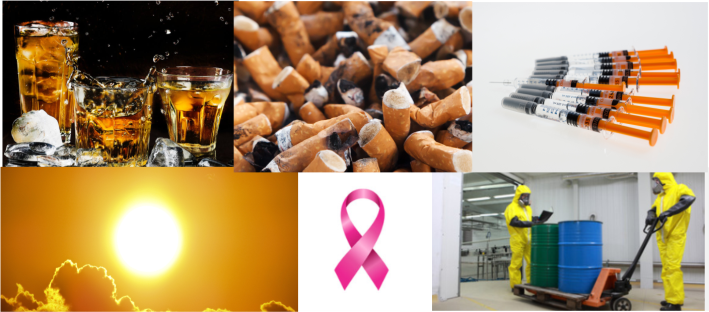February 4th of every year has been set aside by the Union for International Cancer Control (UICC), a consortium of cancer fighting organizations from over 120 countries with a mission to drive world unity in the fight against cancer. The day is targeted at raising awareness about cancer; its prevention, detection, and treatment. The theme for this year’s world cancer day is; I Am and I Will, a call to action aimed at engaging individuals and corporate organisations to commit to take action against cancer.
In line with this year’s theme, Everdon BDC has decided to raise awareness on medically certified tips to prevent cancer. Here are five preventive measures to take against cancer;
• Stay away from Tobacco and Tobacco products
Tobacco contains about 7000 chemicals, 50 of which have been confirmed to be carcinogenic. It is known to kill approximately 6 million people every year and plays a major role in many types of cancer including; cancer of the lungs, larynx, mouth, throat, oesophagus, kidney, stomach, pancreas and cervix. Disuse of tobacco and tobacco products significantly reduces the chances of developing cancer. To contribute to a cancer free society, we advise that you drastically reduce or possibly stop the use of tobacco and tobacco products if you indulge and continue to avoid it if you do not use at all.
• Avoid occupational carcinogens
A carcinogen is a substance capable of causing cancer in living tissues, there are a number of these substances present in certain occupational environment. A study carried out in 2017 identified about 47 occupational carcinogens, and exposure to these substances can cause a wide range of cancer. Dominant route of exposure to these substances are inhalation and dermal contact. If you work with heavy machineries or an environment where you are exposed to heavy chemicals, it is advisable that you adhere to standard operating procedures and wear personal protective devices especially during work hours.
• Avoid long exposure to sunlight
We know you must have heard how exposing our body to sunlight facilitates the production of vitamin D, it might then sound confusing to say that the same act can lead to the development of cancer. However, it’s simply a case of moderation, the sun contains Ultraviolet radiation and staying under the sun for an extended period can expose one to too much of this radiation which can damage the genetic material (the DNA) in the skin cells. If enough DNA damage builds up over time, it can cause cells to start growing out of control, this can lead to melanoma, a dangerous form of skin cancer. Melanoma could be prevented through enjoying the sun safely and avoiding the use of sunbeds. It is usually easier to treat successfully when it is discovered at an early stage, but it is better to avoid totally.
• Controlled use of alcohol
Alcohol is one of the few substances consistently linked to an increased risk of cancer, it is said to be directly responsible for about 5% of new cancer cases and cancer-related deaths around the world. Although scientists have not identified the exact mechanism that explains how alcohol increases the risk of developing cancer, several factors have been identified to play a role; one of them is a toxic chemical called acetaldehyde which is produced from the breakdown of alcohol by the liver. This compound damages the DNA (the genetic material that makes up our genes) and stop cells from repairing that damage, a situation which can lead to cancer. Alcohol can also increase the levels of some hormones in the blood, such as oestrogen, which is linked to breast cancer. The best advice remains abstinence, however, if you must drink alcohol, the key principle is moderation; no more than one drink a day for women, and two a day for men.
• Get vaccinated
Certain viral infections can also increase the odds of developing cancer, such infections include hepatitis B which can increase chances of developing liver cancer. Human Papilloma Virus (HPV), is a sexually transmitted virus that can lead to cervical and other genital cancers. We advise that you talk to your doctor about getting vaccination against viruses not just to avoid cancer but to maintain general wellbeing.




